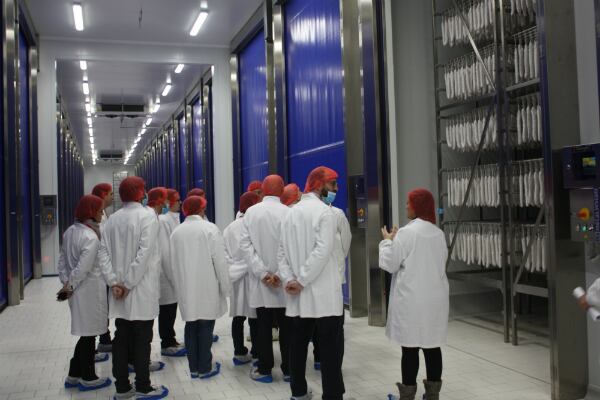In the autumn of 2015, Noel said it was “investing significant” funds to add a meat processing plant to its main headquarters in the Spanish city of Girona – part of the autonomy-seeking state of Catalonia.
In February, the company revealed it had invested a total of €30m ($33.4m) to build a new logistics centre in La Garrotxa, the central business area of Girona. Significant funds have been used to increase its meat processing capacity, allowing Noel to expand both its curing and mixing floors at its main factory. The investment includes some top-secret technology, according to the company.
Noel’s domestic market sales
38% cooked
36% fresh
21% cured
5% ready meals
Exports to 55 countries
Noel said the improved facilities will be running at full capacity at some point in 2016. However, the company remained tight-lipped on disclosing further details.
Right now, the new production space is operating at around 70% capacity, according to Noel’s director of innovation and development Jaume Planella Basquets.
Basquets gave GlobalMeatNews behind-the-scenes access to two of Noel’s modern production factories in Girona, where this site witnessed first-hand how one of the country’s biggest pork exporters processes meat that is bought by customers in around 55 countries.

Tesco and Marks & Spencer among buyers
The family-owned business has been operating out of Girona for 75 years. Basquets says this location in the north-west of Spain provides a “perfect microclimate” that contributes to the quality of its produce. Catalonia has the highest density of pig farmers anywhere in Spain, with about 45% of pork production happening in this region of the country, Basquets adds.
The company had a turnover of €207m ($230m) last year and its traditional pork products – like chorizo and jamon iberico – are shipped to international markets worldwide. Some of the places the products end up include UK retailers Tesco and Marks & Spencer, as well as large supermarkets in the US.
However, the majority of Noel’s sales take place in Spain, with domestic business accounting for 49% of trade. The UK (20%) and France (16%) are its next biggest customers, with Germany, Belgium, Sweden and Mexico amongst the other big importers of Spanish pork.
The company declined to reveal further details on the innovative technology it has in use, as it believes disclosure of such sensitive information could benefit its competitors.
